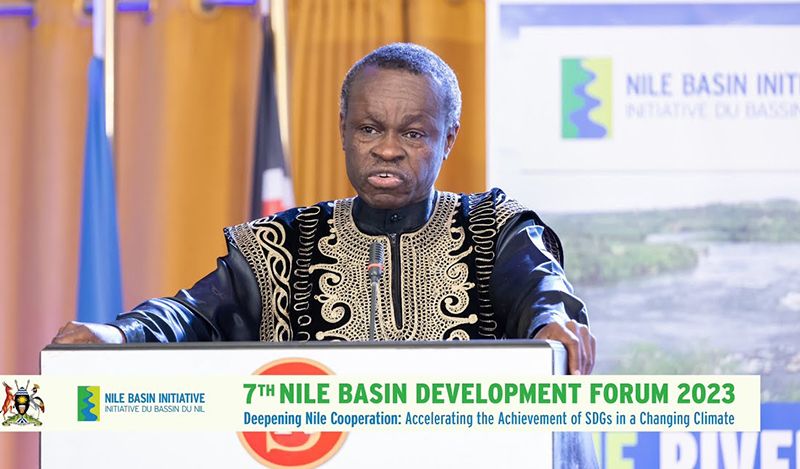
‘Under utilization of the water resources threatens SDG attainment in Africa’

Prof. Patrick Otieno Lumumba
African leaders from within the Nile Basin have been challenged to come up with practical collaborative efforts on how to effectively and sustainably use the Nile waters for the attainment of the globally agreed Sustainable Development Goals (SDGs).
Delivering a keynote address at the 7th Nile Basin Development Forum 2023, Prof. Patrick L. Otieno Lumumba a renowned Kenyan lawyer and activist noted that it is imperative for African countries to devise practical measures on how they can manage and utilize the vast trans-boundary water resources to serve the interests of their people which are enshrined in Sustainable Development Goals.
Based on this year’s theme: “Deepening Nile Cooperation; Accelerating the Achievements of SDGs in a Changing Environment,” Lumumba encouraged member states to collaborate and appropriately use the water to avoid small community conflicts which stem from the unmet sustainable development goals.
He says all the Sustainable Development Goals are somehow linked to Goal Number six which calls for; Ensure availability and sustainable management of water and sanitation for all.
Lumumba reminded African governments that they are not in charge of the water resources despite the importance of water to the social and economic aspects of life. In this regard Lumumba gave the example that foreign multilateral companies like Coca-Cola are leading in production of bottled drinking water on the continent.
He challenged member states in the Nile basin region to walk-the-talk in regard to turning the great trans-boundary water resource into hydro power for manufacturing and water for irrigation to spur increased productivity and development on the continent.
“Iran generates more power than all sub-Saharan countries combined, south Korea produces more electricity than all sub-Saharan countries combined. What can we do in order to ensure that we use these waters in a manner that is going to help us realize our goals, to have water basically, to improve our health because you need a healthy population, to improve our agriculture,” Lumumba noted.
Lumumba warns that failure to agree on collaborative efforts for sustainable use of trans-boundary water resources, in a few years African countries are likely to continue to depend on Western economies which will result in increased importation of food since several parts of Africa are facing conflicts.
“In the next 5 years, Africa is going to be a net importer of food …because as I speak to you there are conflicts. There is no meaningful farming happening in Sudan, there is no meaningful agriculture in the Tigray region in Ethiopia because of conflicts. That is the reality of Africa and that being the reality, we as a people are still dependent on rain fed agriculture, yet we could use these trans-boundary waters responsibly to improve the quality of our agriculture. But what do we do? We pray and fast that it may rain, We should stop praying and fasting. We should be using trans boundary waters for purposes of irrigation,” said Lumumba.
Lumumba further noted that it is high time African governments take up deliberate efforts in order to make substantive investments in utilization of the trans-boundary waters and the entire water sector rather than waiting for funding from the development partners like the European Union.


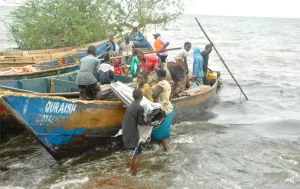


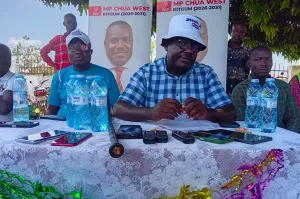
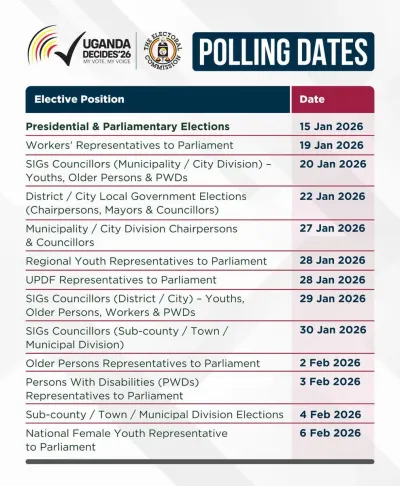



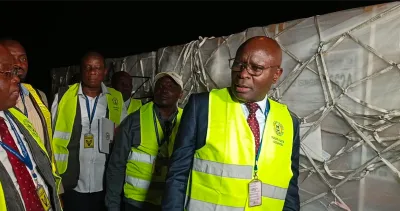



Solomon Lubambula
Leave a Comment
Your email address will not be published.